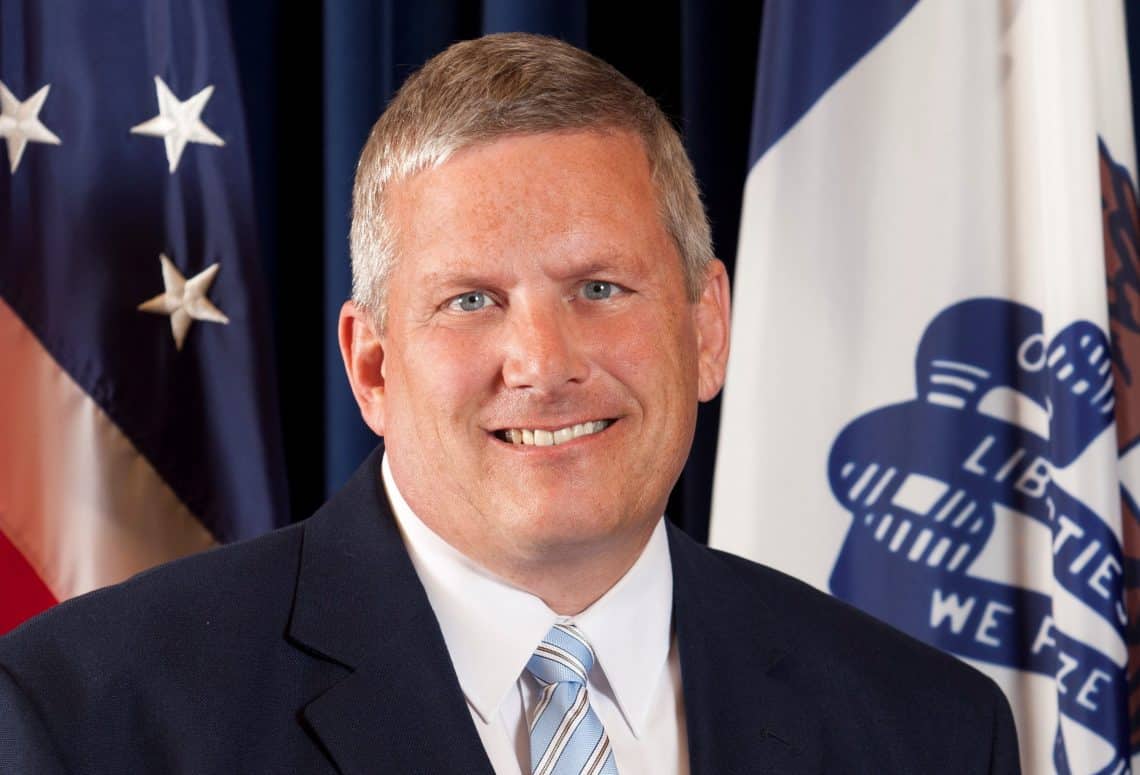
Secretary of Agriculture
Anyone who has been following the news here in Iowa, or even nationally, understands that water quality is very much a hot topic. Fortunately, Iowa has been a real leader in developing and funding a comprehensive effort to make water quality improvements here in Iowa all the way down to the Gulf of Mexico.
We announced the effort to develop a statewide Iowa Nutrient Reduction Strategy in the fall of 2010 with the goal to engage all Iowans and move forward with a comprehensive solution to achieve specific water quality goals. The Iowa Department of Agriculture and Land Stewardship coordinated the strategy in partnership with the Iowa Department of Natural Resources (DNR) and Iowa State University.
Following the release of the strategy in 2012, we were fortunate to have broad bipartisan support to provide additional funding to our department for water quality efforts. The Iowa Water Quality Initiative is the department’s effort to implement the practices outlined in the Strategy.
Our approach has been to work with farmers, landowners, businesses and other partners to harness the innovation of our agriculture community and find new ways to help us do an even better job on our farms. This is how we have made progress to increase yields and reduce soil erosion, and that is how we will see progress on water quality.
I’m excited about the significant progress we have made in a few short years.
Just this year, more than 2,600 farmers signed up to try cover crops, no-till/strip-till or nitrification inhibitor on more than 270,000 acres in 98 of Iowa’s 99 counties. This includes 1,000 farmers trying a new practice for the first time and 1,600 past users that are trying cover crops again and are receiving a reduced-rate of cost share. These farmers committed to spending $8.7 million of their own money to match the $4.8 million in cost share provided by the state.
Iowa also has 56 demonstration projects located across the state to help implement and demonstrate water quality practices through the initiative. This includes 15 targeted watershed projects, seven projects focused on expanding the use and innovative delivery of water quality practices and 34 urban water quality demonstration projects.
Critically important to the success of these demonstration projects is that fact that more than 200 organizations are participating in and supporting these projects. These partners will provide $30.6 million dollars to go with the $19 million in state funding going to these projects.
One of these demonstration projects is focused on increasing adoption of cover crops on seed corn production acres in Iowa. The seed corn focus on cover crops is heavily driven by the industry, and their efforts will promote and support the use of cover crops as a valuable practice for reducing nutrient losses along with other potential production benefits by addressing soil compaction, weed pressures and the lack of crop residue.
However, we recognize there is still a lot of work to be done. The Iowa strategy calls for millions of acres of cover crops, so there are economic opportunities for the seed industry as we continue to ramp up adoption of this practice across Iowa, and really the whole Midwest.
The availability of quality seed; access to drills and other seeding equipment; agronomic assistance; and expanding access to a variety of other resources and services are critically important factors we need to address as we work toward achieving our water quality goals. I would invite businesses and organizations involved in the seed industry to consider how they can become involved in this effort.
The exciting thing is that there is so much work going on around water quality that there are many opportunities for interested parties to be involved. I invite you to visit www.CleanWaterIowa.org to find more information about the efforts underway and to learn more about how you, or your organization, can get involved.
Iowa’s agriculture community is committed to working together and making significant investments to continue to make progress. Collaboration has been and will continue to be the most effective path forward for improving water quality.













